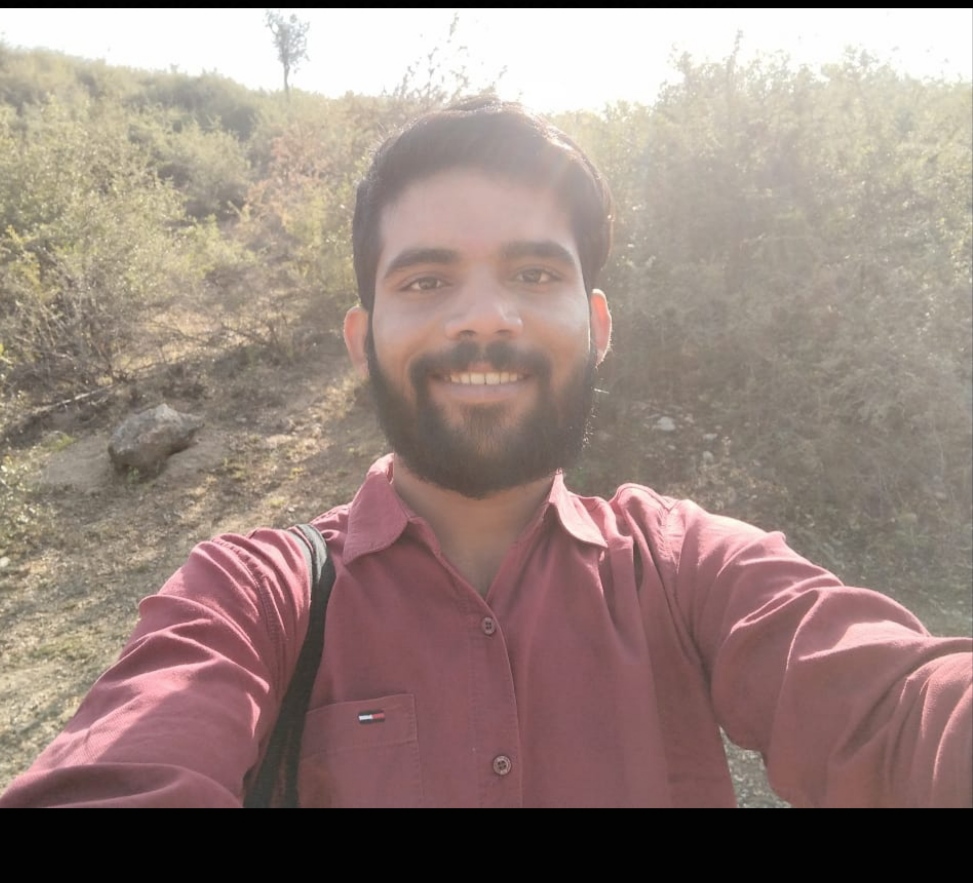I am from rural Rajasthan; I have worked as a labourer and been associated with social sector organisations and institutions in different capacities—implementing labour rights and schemes, helping to build an MGNREGA union, and creating constitutional awareness among the youth. The social sector conducts workshops and programmes at grassroots organisations and often calls them capacity building initiatives. My experience has taught me that a person’s identity dictates who is at the giving and receiving end of such capacity building.
Who is seen as capable of teaching? What experiences count as expertise? Whose capacity is being built, and who gets credit for building it? We often treat capacity building as a one-way street, flowing from the urban, educated, caste- and class-privileged, to the rural, marginalised, and so-called less skilled—the knowledge givers and the knowledge receivers.
This mindset requires a shift because knowledge flows both ways. Someone with less privilege can build the capacity of someone with more. Rural fieldworkers and grassroots community mobilisers, with their layered lived experiences, knowledge of local contexts, and experience with grassroots work, have just as much to teach urban and upper-class development practitioners as they have to learn from them. In fact, this exchange is already happening.

Who gets to be called an expert?
While working in the nonprofit, sangathan (collective), and union space, I met interns, resource persons, and colleagues who, from my perspective, had social, economic, and political privilege. Some had studied abroad, yet they chose to move to rural Rajasthan for work. After discussing their reasons and finding out more about their motivations, I realised that they wanted to gain experience that would strengthen their capacity in the social sector.
This is because many organisations work with marginalised communities in villages, and need to develop a deep understanding of their lives. They should also be aware of local governance, how to communicate with an SDM, what a BDO’s role is, how village schools operate, and more. This requires familiarity with the cultural, social, economic, and political realities of rural India.
Let’s take the example of Rashid,* who had left engineering to work on rights and was managing a fellowship programme for grassroots activists. I asked him why he had chosen to live in a rural area. After all, with a degree from a prestigious university and fluency in English, he could get a higher paying job in a city even within the social sector. Rashid told me, “There are so many things you don’t learn in a classroom or office that you can learn by talking to people here. Gaining these grassroots perspectives strengthens my work and gives me legitimacy in the development sector.”
That was the first time I saw how my life and experiences could help build a skill for someone like Rashid. A major reason for this is that when compared to the knowledge of someone who is formally educated, our knowledge is often not considered legitimate.
However, this mindset can be changed by recognising that those at the grassroots also build capacity.


1. Value all experiences and knowledge equally
Inequality exists. All of us in the social sector know this. Some of us live it. But in today’s world, the solution to inequality should not necessarily come from someone who reads books—it can also come from someone who labours or farms. The real issue is that those who have historically received quality education often do not engage in hard labour or other kinds of jobs deemed ‘menial’ or ‘unskilled’, and those who have traditionally laboured for a living do not have access to the kind of education needed to become ‘knowledge givers’. Unfortunately, the dominant castes and classes often view the marginalised as less skilled, more ignorant, or less educated.
For example, someone like me or my counterparts from rural areas, who either have the skills to be fieldworkers or have acquired these skills, are often not the ones leading capacity building sessions. The capacity building we can offer is not recognised. When an outsider like Rashid experiences village life, they gain recognition and their words carry a special significance on panels and in workshops. However, it is the fieldworkers who take them to the villages and show them around, which is then presented as stories from the ground at conferences held in urban settings. But when they do not genuinely learn from us with the right intent, villages end up being portrayed as helpless, unequal, and full of suffering. This skill of telling someone else’s story sensitively is a built capacity.
After just one or two years of ‘grassroots’ experience, urban and upper-class individuals return to hold capacity building sessions the following year. This raises another question: Is it really possible to understand everything in just a few years?
I believe that building someone’s capacity should not be about taking space—it should be about making space, especially for those with less access. If a person with privilege is working on building capacity for people like us, they could bring on someone from the community as a co-facilitator (and not just use their testimony to make a point). The mould of the ‘best’ candidate—who is “fluent in English, comes with referrals and gap-free CVs, and fits in well with the room” needs to be broken and redefined as explained in this illustration.
2. Work within the context
As someone from the ‘outside’ coming to build the capacity of a community, rural fieldworkers, or any other group, one must understand that every group learns in different ways and also has knowledge to impart.
The path towards justice varies for different communities, and understanding this is a capacity in itself.
For example, when I was working with the Rajasthan Asangathit Mazdoor Union, a female social worker, who lived in a city and had years of nonprofit experience, visited us. A female worker from the union took her to a NREGA work site for orientation, and chaos ensued. The urban worker started pulling off the veils of the women labourers one by one, saying, “The veil is against feminist ideals. How can you all be so backward?”
Many union members got extremely angry at this and said, “We will not remove our veils in front of an outsider.” I, too, believe in feminist ideals and personally disagree with the practice of veiling, but no one should be allowed to impose their views. Social justice and equality must be understood within specific contexts. The path towards justice varies for different communities, and understanding this is a capacity in itself. Working in villages and with communities in the right way is a skill that people like us can help others to develop.
Recently, a consortium of organisations that work with youth invited me to facilitate a workshop in Mandwa village, Udaipur district. This was a three-day workshop where I had the opportunity to help students from classes 10–12 to create a song based on constitutional values. In this case, I was the facilitator who had come from outside to build the capacity of these youth. This was an Adivasi area, and the students belonged to the Garasia community.
During the workshop, I realised that when I positioned myself as more experienced, the participants were less receptive. Instead, it was important to engage as equals, understand their lives and contexts, and then create the song. I observed that elements of the constitutional values of equality, unity, and freedom already existed within their culture, as is true for other indigenous cultures. During the workshop, the youth composed a beautiful song, raising awareness about social evils, rights, and constitutional values—but in the rhythm of their own folk song. They sang and danced together in a chorus, in the style of their community. Until then, I had relied on workshop methods shaped by urban experiences, but this incident deepened my appreciation for contextual techniques and expanded my capacity.
3. Build capacity that aims to level the playing field
There is no doubt that people who come from less privileged identities need their capacities to be built in order to ‘climb the ladder’. However, the type of knowledge shared in these capacity building sessions needs an overhaul. I once told an urban friend, “You all come to learn from us, but have you ever shared your life with us? We take you into our homes—you sit with us, eat with us, learn about our customs—but you never invite us in the same way to experience your world.” Along with acknowledging us as knowledge providers, open your doors—literally—for us to learn and benefit from your social capital.
When I did finally live with that same friend for several months in her Delhi home, I accessed a world that had been unknown to me. I understood the depth of the divide between the rich and the poor, the caste-privileged and everyone else. Because of her privilege, I met founders, funders, people in the higher brackets of the social sector, and was invited to platforms where I could speak about rural realities. I learned the basics of networking, how the urban social sector works, and what criteria are valued for upward mobility within it.
But people often come to build the capacity of us ‘knowledge receivers’ in a way that, although useful, is not with the intention of levelling the playing field. For example, I’ve participated in some wonderful workshops and trainings on understanding constitutional values and rights, how inequality works systemically, gender justice, and more. But I have often thought that if someone had simultaneously taught me English; necessary computer skills such as Microsoft Office, coding, or Canva; writing and editing; fundraising techniques; proposal and report writing, and encouraged me to apply to colleges, I could more easily traverse the world of the elite.
It is the sector’s job to provide opportunities. For example, when I speak with young people from a similar background as mine but who have gone to institutions such as Azim Premji University to study, I understand what quality education really means—the ability to think critically and connect lived experiences to larger frameworks. I also often think about the feeling of surprise I had when a well-known organisation, Mariwala Health Initiative, appointed me as the lead in a research project; I went on to represent the work our team had done on national and international panels. Unless these kinds of opportunities are structurally made available to people from marginalised backgrounds, change will not take place.
Since class and caste inequalities are deeply entrenched, sometimes I wonder, are people afraid that if we have access to both kinds of knowledge, we might begin to claim equal space? That if we learn to speak the same language and build the same capacities, we’ll have the ability to bring our own issues to the forefront instead of having others speak for us? The goal should not be to guard privilege but to bridge inequality in real and material terms.
Reciprocal exchanges—on equal terms, with mutual respect for each other’s knowledge—can build everyone’s capacity in deeper, more intentional ways.
*Name changed to maintain confidentiality.
—
Know more
- Learn how a person’s identity affects how they climb the social ladder in India.
- Read this reflection on putting people at the centre of research.




